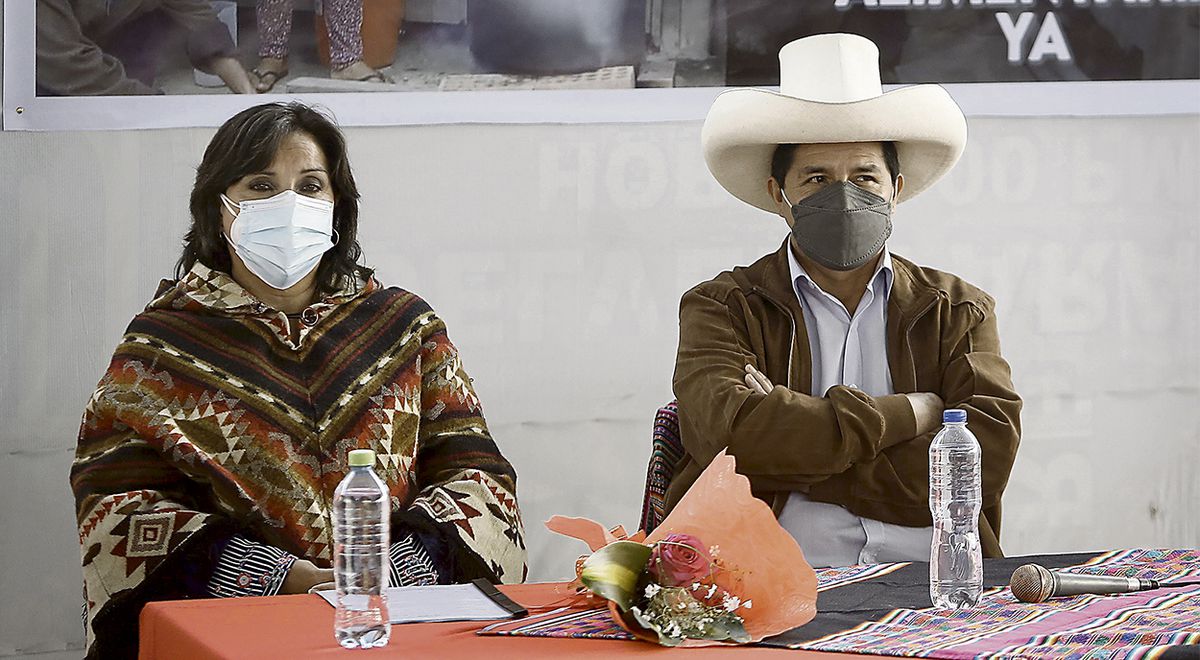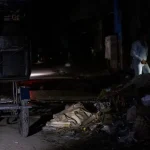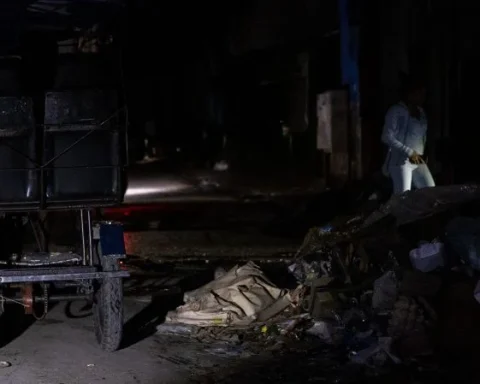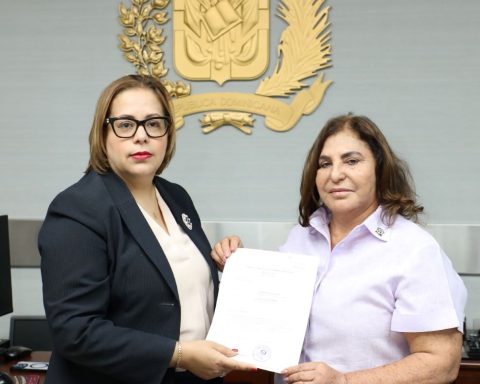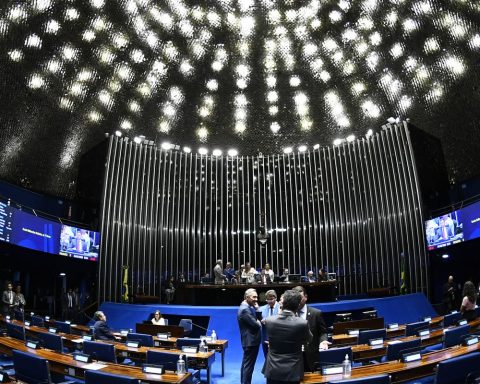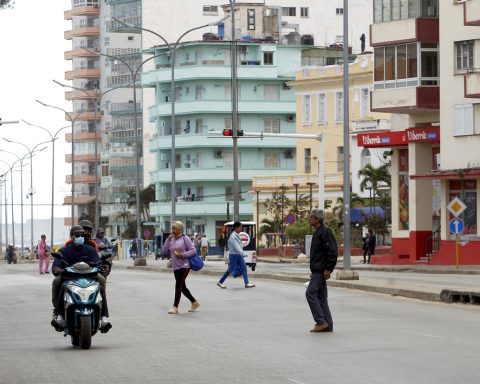The Vice President and Minister of Development and Social Inclusion, Dina Boluarteruled more strictly on the recent report of the Comptroller General of the Republic (CGR) that indicates that he had incurred in an alleged constitutional infraction for having intervened in the management of the private association Apurimac Departmental Club (CDA).
The entity is based on article 126 of the Magna Carta, which establishes that the ministers cannot “be managers of their own interests or those of third parties, nor carry out a lucrative activity, nor intervene in the direction or management of companies or private associations.” As a result, the president of Congress, María del Carmen Alva, was notified and recommended “performing the corresponding actions.” The document was sent, in turn, to the benches. However, it would not have reached Boluarte.
“I express my protest for the actions of the Comptroller”, The vice president wrote on her Twitter account, denouncing that she did not receive the full 60-page document. And she added: “On 5/20, one day before leaving to represent Peru, they only sent me (the) letter 000003-2022, where there are no conclusions or recommendations. Taking advantage of my absence, they send Report 005-2022 to various entities, the content of which I do not know.”
YOU CAN SEE: Comptroller General Warns Constitutional Violation of Dina Boluarte
Boluarte questioned the institution for having violated her right to defense and due process, by not having been notified with the full report. “The Comptroller must always be a technical body and never a political one,” he said. The Midis head would seem to suggest that the CGR is being used to harm her and the government.
Warn. Boluarte seems to suggest that the Comptroller’s Office is becoming a political entity against the Government. Photos: screenshots from Twitter @DinaErcilia
However, the Comptroller’s Office issued a statement through its social networks and shared the position of the document they sent to the minister. They maintain that they did respect her right to defense by requesting discharges, which she replied to last March and April. They add that the result of the inspection was “properly communicated”. “We act in a legal and technical manner, and by virtue of this, it is appropriate to send the results of the inspection and the facts reported to the entities that have competence so that they can evaluate them according to their attributions and order the corresponding investigations and measures,” they conclude.
The Republic had access to a four-page document that the head of the Midis received on May 20 —before going to participate in the World Economic Forum— that reports the finding of incompatibility with the position of minister when signing “various documents of public character as president of the Board of Directors” of the CDA. This, adds the CGR, would be a constitutional violation.
YOU CAN SEE: Congress: they prepare constitutional accusation against Dina Boluarte and Pedro Castillo
Signed documents
According to the report, Boluarte, as president of the Board of Directors of the CDA, signed —at least— 13 documents dated after her swearing in as minister, between August and October 2021. (See table).
The vice president maintained that, apart from having been approved for this position, the documents correspond to matters of “registration correction” to guarantee the succession of his replacement and not to management or direction issues. In a memory aid that personnel close to Boluarte circulated in the media, it is also specified that these licenses “according to administrative law, do not exempt from the effects of legal representation, which cannot be delegated.”
This is the main point of disagreement. While for the latter everything is a simple registry regularization, for the control institution the minister did participate in management matters of the CDA. On page 39 of the report it is read that Boluarte “intervened in the management of the institutional activity of said private association”, which “would be incompatible” with the position of minister.
YOU CAN SEE: Chirinos defends constitutional accusation against Dina Boluarte: “There is enough evidence”
Moves in Congress
As soon as the report became known, Avanza País announced a constitutional complaint, which was carried out by Norma Yarrow asking for the maximum sanction: dismissal and disqualification for 10 years from exercising public office. Javier Padilla, from Renovación Popular, also acted along these lines, expressly requesting that she be removed from the position of vice president.
Tomorrow the Subcommittee on Constitutional Accusations will meet and, according to some opposition legislators, they will request that the issue be brought up. The regular process is that complaints are reported and then the case is delegated to one of the members.
It should be noted that Alejandro Muñante, from Renovación Popular and one of the members, wrote on Twitter about the issue, referring to the case of the disqualified former president Martín Vizcarra: “Once again, Congress must do its homework!”
YOU CAN SEE: Montoya announces interpellation motion and constitutional complaint against Dina Boluarte
Lawyer Alberto Otárola, who analyzes Boluarte’s case at her request, considers that “dangerously” congressmen advance opinions, which affects due process.
The constitutionalist Óscar Urviola affirms that it is advisable that the members of the subcommittee not advance an opinion because in practice they act as judges.
The scope of a possible sanction against Boluarte remains to be seen. The most radical opposition does not hide the intention that the punishment includes removing her from the vice presidency. And in the event that Pedro Castillo is either vacated or also disqualified, whoever assumes the presidency would be the head of Congress.
Process. Rosio Torres leads a subcommission that will see complaints. Photo: Congress
YOU CAN SEE: Dina Boluarte: they present a constitutional accusation against the Vice President of the Republic
The 13 documents
Boluarte, being a minister, is prevented from exercising direction or management in associations. He alleges in his defense that signatures are not of that type.
The report specifies that documents are registration items corresponding to records and requests for rectification of past records, before 2021.
The Comptroller’s Office maintains that it is its duty to send the results and facts reported to the competent entities so that they can carry out investigations and adequate measures.
YOU CAN SEE: Dina Boluarte: “They haven’t let us govern in peace”
There is no infraction, process is flawed
Approach by: Alberto Otárola, constitutionalist
It should be noted that the Comptroller’s Office is in the midst of a political and constitutional debate, it has exceeded its functions. You cannot qualify whether or not a vice president or minister has committed a constitutional violation, that is not your job. Due to its form and substance, it is a flawed process that must be studied carefully and with special relevance. What Boluarte has done is to correct and rectify registry observations, that is, they are not acts of management. Sunarp’s regulation of legal persons establishes that a former director can subscribe so that the organization is not paralyzed. It is a procedural correction regarding past acts. We call for coherence, to think about the country, the institutions and the positions elected by popular mandate, and not take hasty measures that could generate ungovernability. Basically, it is wanting to hit the vice president and then hit the president. Called to sanity.
YOU CAN SEE: Cerrón describes a possible constitutional complaint against Boluarte as a “soft coup d’état”
If it classifies an infraction, the sanction would be less
Approach by: Óscar Urviola, former president of the Constitutional Court
Article 126 establishes as a prohibition to manage associations and does not make any distinction from what is contained in that regulation. It is enough that she has sworn as president in acts of regularization or not. That he has carried out some secondary acts of procedure, can only influence the sanction that is applied to him, obviously it would not be the maximum of 10 years, it would have to be a minor sanction, nothing more. The acts you have committed are management. In the limitations we can never make an extensive or restrictive interpretation. Article 126 does not exempt acts of mere procedure, it could have said, but it does not say so. And we cannot interpret when the law says nothing, the qualification is objective. The infraction, in my opinion, is typified. It seems to me that the appropriate thing was to resign from that position. In that case, if she had not executed acts subsequent to her appointment as minister, obviously there would be no infraction.
